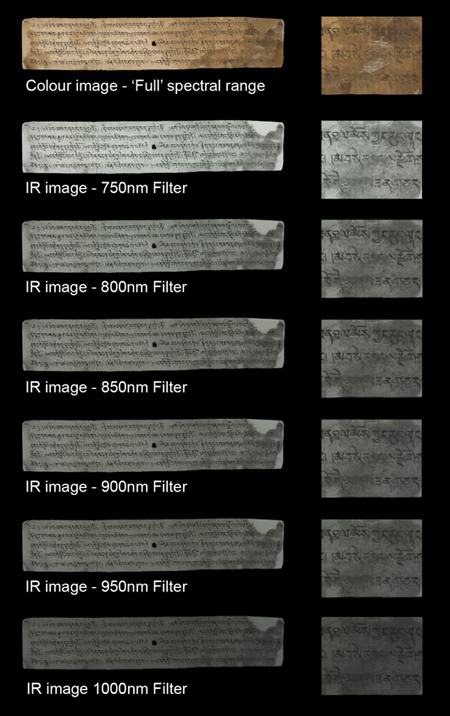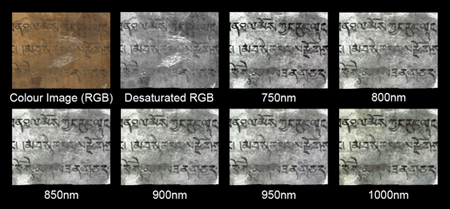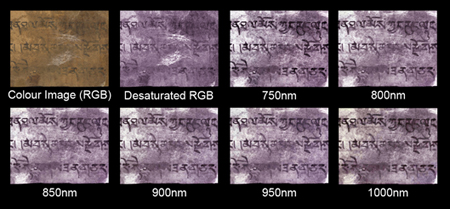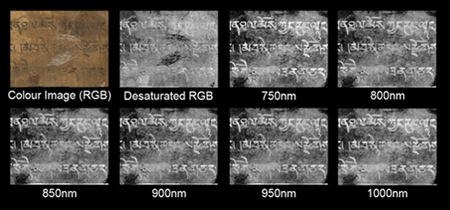Case Study 2: IOL Tib J 9
The reasons for fading and wear of text will always be open to speculation but in many cases infrared can help to reveal and clarify text. IOL Tib J 9 exhibits a fairly common pattern of fading or wear. The surface appears dusty, has low contrast characteristics and is patchy in colour.
 |
The top righthand corner has been subject to a minor repair. Below the repair is an area where the text is faded and the surface slightly scuffed. This is an area where we would hope to be able to reveal the lost characters of text using infrared photography. Working down from the full colour image each Infrared filter has been used to try and reveal more information. As we work through the filters the contrast of the image becomes weaker. The 1000nm image is nearing the very limits of the cameras sensitivity of around 1050nm. More information may be available but generally digital cameras are do not have a sensitivity tail beyond 1100nm so we are limited in how far we can go. Each filter in step has revealed a little more information, however we would have liked to see more detail brought out. The only way we have of knowing that a manuscript will not react to infrared is to carry out the process of photographing and assessing the images. |
By adjusting the brightness and contrast of the images it is possible to clean the image to enhance whatever information is present.
The images show that a few characters have been enhanced. There is however an area that appears to be 'blocked' that each filter has failed to bring through any text.
 |
1. Contrast and brightness optimised from original images (full colour image desaturated for reference) |
 |
2. Adjustment in the green channel brings forward more detail. |
 |
3. Images inverted to produce a 'negative'. |
 |
4. Inverted images desaturated. |
All images were captured using PhaseOne Powerphase FX+ digital scanning back mounted on DeVere 480 Vertical copy camera. Lighting is by Elinchrom tungsten modelling lights set to full power. Exposure specification as per chart. All images captured at 'High Resolution' (colour scale).
| FILTER | SHUTTER SPEED | APERTURE | ASA | PIXEL DEPTH |   |
|---|---|---|---|---|---|
| 750nm | 40th/sec | f.11/16 | 400 | 16 bits/channel | |
| 800nm | 40th/sec | f.11/16 | 400 | 16 bits/channel | |
| 850nm | 30th/sec | f.11/16 | 400 | 16 bits/channel | |
| 900nm | 20th/sec | f.11/16 | 400 | 16 bits/channel | |
| 950nm | 15th/sec | f.11/16 | 400 | 16 bits/channel | |
| 1000nm | 8th/sec | f.11/16 | 400 | 16 bits/channel |